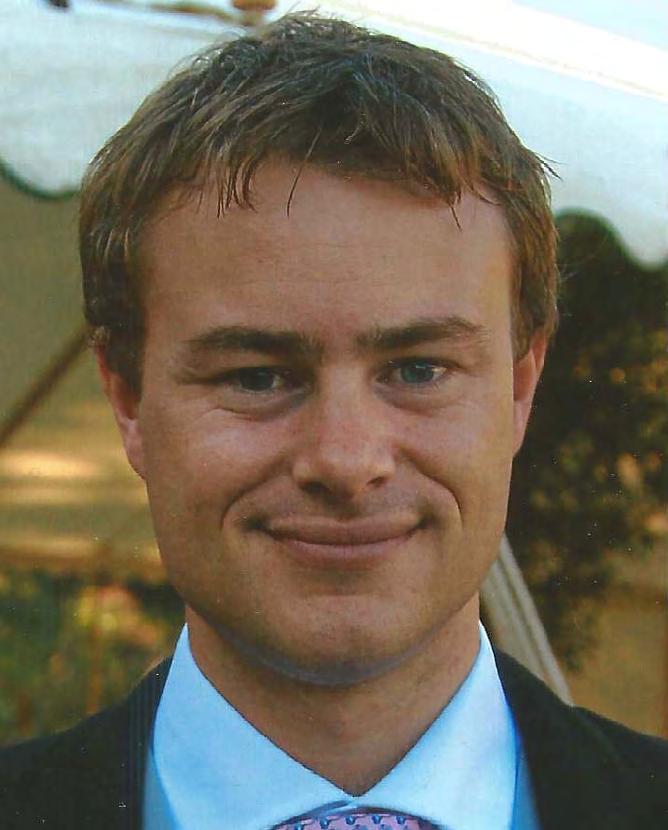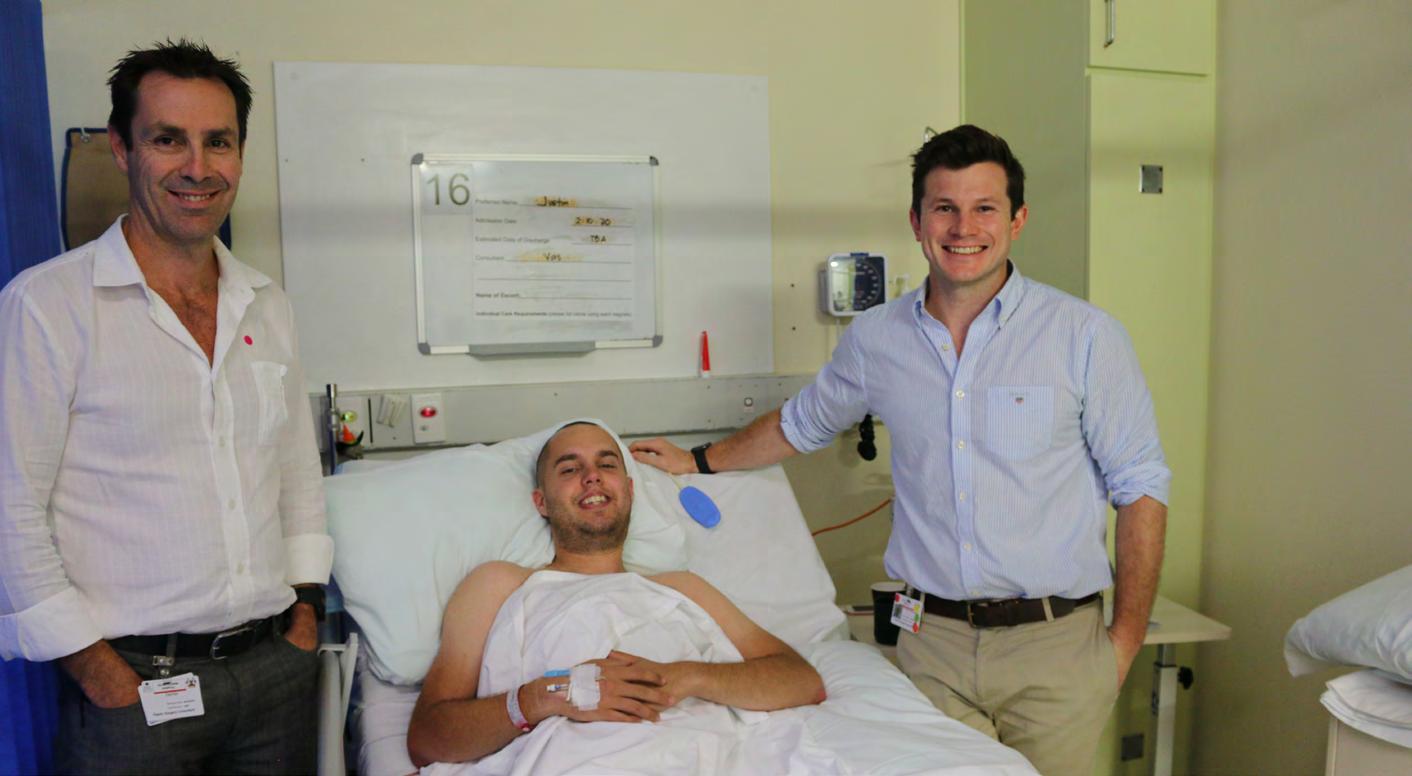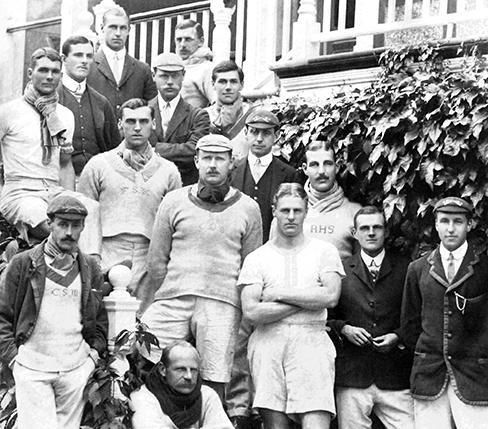
7 minute read
Trainees talk about supervisors
Joseph Xavier, SET 2 in General Surgery
How have your supervisors had an impact on your development and training? I have been really lucky throughout my time as a junior doctor and as a junior SET Trainee to have had some really wonderful supervisors. I remember when, as a Senior Resident Medical Officer (SRMO), I had just failed my primary exam for the first time. An upper GI surgeon who was quite senior sought me out and supported me, even though I wasn’t on his unit at the time. He made it clear that this wasn’t the end of the world and that he was there to help me. He was really encouraging, and he didn’t have to be. I still thank him for his support and his belief in me. When I was on a rural term I had a supervisor who was an incredible role model in how he acted and conducted himself with nursing staff, ancillary staff and medical students. He really considered himself part of the team and would do things to help out and ensure the team functioned well. He even shared the note-writing duties on weekend ward rounds with me. It was a great example to me, as someone junior, that a senior consultant was still willing to do ‘grunt’ work to ensure the best patient care. What makes a good supervisor? I think availability is important to a supervisor so that if you run into trouble you know you can contact them and they will be approachable. A good supervisor must also understand your level of training. You need someone who is invested in you and your training, sits down with you and tells you what they expect, and asks you what you hope to get out of the term. I also think a good supervisor is someone who allows you the opportunity to upskill and gives you autonomy, but is still within reach if you need them. This gives you the opportunity to gain skills in a safe way. A good supervisor has a focus outside the immediate work, such as research or academia, and shares this with you and gets you involved. What advice would you give other Trainees for working with their supervisors? Planning is the key. Make sure that you start out right: to do this you need to speak to previous registrars and find out what the unit’s expectations are and how the team functions. Set tangible goals for each term and share these with your supervisor so that they know what you are hoping to achieve. The other aspect of planning is before theatre. Be prepared; know the patient, the operation, the potential complications and be able to discuss this with your supervisor. This preparation helps you get the best out of the relationship.
Advertisement
Benjamin Thurston, SET 3 in Vascular Surgery
How have your supervisors had an impact on your development and training? I have had three supervisors with quite contrasting approaches to their role – and I have been lucky that each of them has provided me with formative advice and guidance. My standout supervisors have taken the time, not only to guide me in the requirements of training, but also to mentor me in the attributes and qualities that I will require to be a good surgeon. My supervisors have set an inspiring example and have left an impression that will remain with me for many years to come. What makes a good supervisor? I think a good supervisor is someone who takes the time to understand who their Trainee is. This allows them to identify weaknesses and strengths in their Trainee’s experience to date, both to enable the Trainee to maximise their learning within the unit and to maximise the unit’s benefit from the Trainee. Understanding who a Trainee is, both in and out of hospital, allows supervisors to give appropriate guidance and understand the complexities of any issues that may arise. It can also highlight

Trainees who may be a good fit for a unit in years to come. What advice would you give other Trainees for working with their supervisors? Each Trainee–supervisor relationship is unique. I have found that being open and receptive to different supervisor styles, together with clear and honest communication, allows for a healthy relationship. Ensure you discuss your training goals and any post or personal concerns as early as possible, but equally seek to understand how the unit you are in works and their expectations. James Churchill, SET 5 in Urology
How have your supervisors had an impact on your development and training? While all six of my training supervisors have had a different approach, I’ve found the common theme has been their approachability and genuine interest in helping me to be the best surgeon I can be. The most positive impacts have been in setting realistic expectations. As a Trainee it can often be tempting to set fantastic goals, but frustrating to find skills developing more slowly than To complement the launch of the new edition of the Training in Professional Skills Course (TIPS), the TIPS Committee, together with a working group of subject matter experts, developed a series of human factors e-learning modules. Human factors are also known as professional skills, behavioural skills and non-technical skills. ‘Non-technical skills’ is perhaps the most well-recognised term, but it is considered by some as a misnomer as these skills are highly technical. The knowledge, experience and rehearsal required to conduct a difficult conversation with patients and relatives, or perform in a team as both an active follower and leader is just as technically demanding as what is required for a difficult surgical procedure. A lack of skills in human factors can be just as devastating and dangerous as a technical expected. The best advice I’ve had was from my first Urology term supervisor, who likened gaining surgical skills to a child learning to eat with a spoon. While it can be initially frustrating to find most of a meal on the face or bib or floor, invariably once the connection is made and spoon makes it to the mouth, it sticks, and you (or the child) never look back. What do you think makes a good supervisor? In my view, good supervisors are those with whom Trainees can build up rapport, trust and see as approachable beyond operative failure to a patient, your team and your own wellbeing. As a way of giving back in a year that has been incredibly challenging for us all, the Skills Training Department is making these popular human factors e-learning modules more widely accessible. The modules are now available to all Fellows, Trainees, Specialist International Medical Graduates (SIMGs) and junior doctors, as well as Skills Training faculty and College staff. The modules include topics such as: • Conflict management • Decision-making • Patient-centered communication • Situation awareness • Speaking up in response to unacceptable behaviour the formal Trainee–supervisor structures. Feedback and development can then occur naturally in everyday interactions, with any issues that arise resolved in a continual, low-stress process (rather than just at high-stress assessment time). The best supervisors are also monitoring the feedback of their colleague trainers and ensuring the Trainee always knows where they stand – that any issues aren’t flying under the radar for too long. What advice would you give other Trainees for strengthening how they work with their supervisors? I have found that my best relationships with supervisors have been where we both knew exactly what we were signing up for, right from the start. If you don’t already, I recommend sitting down with your supervisor in the first couple of weeks (or even a couple of weeks before starting) and writing down your goals, both training and personal, for your term. Allowing time to review these, either before, or as part of your assessment report process, gives you both an idea of how things are going and allows

Human factors online modules available
articulation of what’s next. • Stress and resilience • Team dynamics The modules were developed to increase awareness of the impact of human factors on surgical practice and risk mitigation, and to improve patient outcomes.
The comprehensive suite of online resources, which includes videos, interactive activities, reading and knowledge checks, is available online. Log in to your profile to access these modules or click here to learn more.










